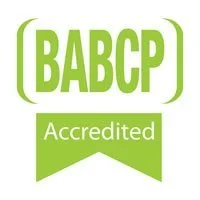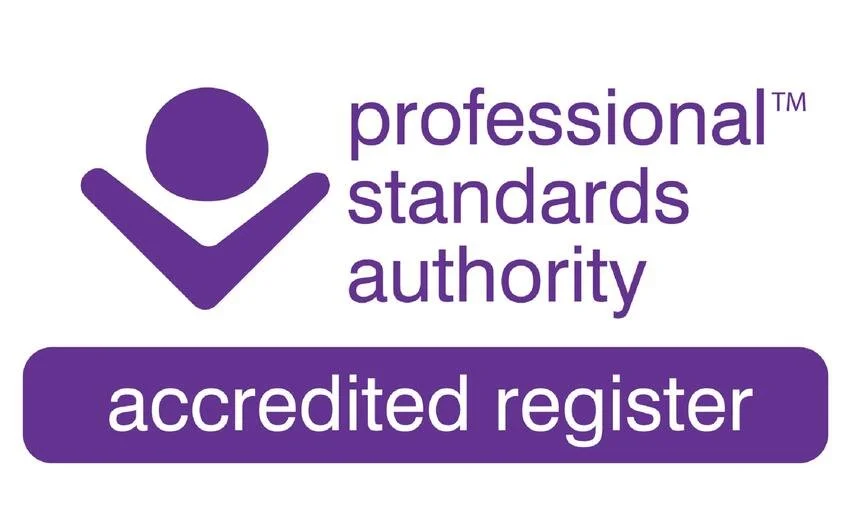
Belong in Any Room: Specialist Support for People Navigating Anxiety, Visibility & Performance
Therapy and coaching to help you feel safe being seen, trust your instincts, and belong in the life you’ve built.
You're high functioning, but you still feel anxious.
Maybe you're an entrepreneur who is second-guessing every major decision. An executive who feels sick with anxiety speaking up in boardrooms. A creative leader who struggles to own your expertise publicly. Or someone in the public eye who performs confidence but rarely feels it. A professional who just doesn’t know what to do anymore.
You want to:
Make intuitive decisions without endless second-guessing
Speak up against the norm when your perspective differs
Walk into any room knowing you genuinely belong there
Lead authentically rather than performing
Trust your instincts instead of seeking external validation
Own your unique identity as a competitive advantage
But despite your achievements and how you look from the outside, that nagging inner voice still whispers: "You don’t belong here."
Traditional confidence tools often stay at the surface - focusing on techniques to override fear or appear self-assured.
The ability to be yourself isn’t something you need to perform or build from scratch. It’s something that’s uncovered, gently, as your nervous system begins to feel safe again. When that happens, anxiety and self-consciousness naturally loosen their grip.
Common Challenges I Work With
These issues rarely exist in isolation - often several show up together, and that's completely normal.
Social / Performance Anxiety
E.G. feeling anxious before presentations, networking events, socialising or important meetings. Not speaking up in group dynamics. Avoiding opportunities for visibility that could advance your career. Anxiety ahead of auditions/interviews that impacts performance.
Public Speaking Anxiety
E.G. avoiding presenting or opportunities, struggling with visceral anxiety symptoms that impact performance, unable to collect thoughts, feeling embaressed by public speaking.
PTSD and Trauma
It’s not uncommon for traumatic experiences, whether professional or personal, to impact how we show up in the world today. This is something that often comes up in my work. Common themes include humiliation trauma, complex trauma, lack of attunement, neglect, poverty, bullying, growing up ‘different’ in some way and more.
Imposter Syndrome
E.G. Feeling like a fraud despite your achievements and qualifications. worrying others will discover you "don't belong" somehow, attributing success to luck rather than your capabilities.
Feeling Different
E.G. having a different way of seeing or understanding things, but instead of viewing yourself as a valuable maverick, feeling like an outsider or that you are wrong somehow. Perhaps feeling stupid / weird / inept etc.
Inferiority
E.G. Feeling easily triggered into feeling ‘below’ people even though there is no reason to feel this way, a sense of never being enough.
Visibility Toleration
E.G. Struggling to speak up in meetings or challenge the status quo, feeling uncomfortable being seen as an expert or thought leader, playing small to avoid criticism or standing out too much, avoiding opportunities for success.
Social Media / Press Presence
E.G. avoiding social media despite knowing it’s necessary for your visibility, struggling to show up authentically, unable to tolerate negative comments and press, feeling humiliated by negative coverage.
Anxiety
E.G. Constant worry and fear about different or specific things, hyper-vigilence of bad things going wrong, struggling to control and manage your thoughts, physical anxiety symptoms, behavioural anxiety e.g. avoidance, struggling with eye contact, trying to control your behaviour.
Hi, I'm Sophia!
I'm a specialist accredited therapist helping you develop the ability to truly be and belong wherever you are.
My clients have included early career professionals, as well as professionals affiliated with big tech, CEOs and CFOs, the UN, governments, financial institutions and the creative industries.
My Method: A Three-Pronged Approach to Authentic Confidence
-
Interrupt the patterns keeping you stuck
Challenging limiting beliefs that make you question your worth
Recognising thoughts that stop you from speaking up or taking bold action
Building practical skills to quiet your inner critic and trust your instincts
Identifying and changing unhelpful behaviours that keep you stuck
Learn anxiety management techniques to help you ride rather than resist anxiety
Learning to make decisions from inner knowing rather than external approval
This isn't generic CBT—it's specifically tailored for the unique challenges faced in social situations.
-
Social Neuropsychology
Work with your social brain, not against it.
We understand how the human brain responds to social hierarchy, status, and group dynamics—and how to rewire these responses:
Addressing the threat detection systems that activate in high-stakes situations
Understanding how your brain's social ranking system creates imposter feelings and self-doubt
Working with mirror neurons that make you absorb others' energy and expectations
Recognising when your nervous system is in "social threat" mode versus "social safety"
Rewiring attachment patterns that show up as people-pleasing or approval-seeking
Understanding how early social experiences wired your brain's response to authority, visibility, and belonging
Learning to regulate your nervous system so you can access authentic confidence in social situations
Developing embodied presence that signals inner authority at a neurological level
-
Clear what traditional coaching and CBT can't touch
We use EMDR (Eye Movement De-sensitisation Reprocessing) to process and integrate past experiences that still impact your present authority:
Processing shame, criticism, or rejection that echoes in your mind during high-visibility moments
Transforming experiences that trigger imposter feelings or self-doubt
Releasing old versions of yourself that whisper "you're not qualified/smart/good enough"
Integrating your achievements at a nervous system level so you truly feel them
Clearing emotional blocks that keep you from owning your expertise
Freeing your natural confidence from whatever's been keeping it buried
Eradicate public speaking and public spotlight anxiety

Options for Support
-
Weekly or fortnightly sessions available. Most clients work with me for 8-16 sessions, some for longer, some do ad-hoc and book in as and when. It varies based on your specific goals and challenges.
£110/£150 (60/90 min) or payment options available. Read more here.
-
Accelerated transformation. Want to process your biggest professional block in the speediest timeframe? Complete up to 6 x 90-minute sessions across 2 weeks (or more if wanted). Ideal for addressing workplace trauma, fear of failure, or deep-rooted imposter syndrome that's keeping you stuck and deep rapid change.
-
Learn more here
Not sure what’s right for you? No problem! In our initial call we will discuss which is the most likely to access the best outcome for you.
Prices shown in GBP - payment available in your local currency at the current conversion rate.
Ready?
FAQs
-
CBT (Cognitive Behavioural Therapy) is an evidence-based therapeutic approach that focuses on the connection between your thoughts, feelings, and behaviors. Unlike traditional talk therapy that explores your past in depth, CBT is practical and present-focused—we identify the specific thought patterns and beliefs that are keeping you stuck right now, and develop concrete strategies to change them.
-
EMDR (Eye Movement Desensitization and Reprocessing) is an evidence-based therapy that helps your brain reprocess difficult experiences and update unhelpful beliefs. Unlike traditional talk therapy, EMDR uses bilateral stimulation (typically eye movements, taps, or tones) to help your brain process "stuck" memories and beliefs that contribute to your anxiety.
-
Prices vary based on amount of sessions. Read more here.
-
Social and business blocks often develop from earlier experiences where you felt judged, embarrassed, or rejected. EMDR helps identify and reprocess these core memories, allowing your brain to update the negative beliefs that fuel your anxiety (like "I'm not good enough" or "People will judge me"). This creates lasting change at the root level instead of just managing symptoms.
-
EMDR works effectively for both "big T" traumas and "small t" traumas. Social and/or performance anxiety often stems from seemingly minor experiences (being laughed at, feeling excluded, being criticised, choking up one during public speaking) that had a significant impact. EMDR can help process these experiences regardless of their perceived severity.
-
We'll begin by identifying the specific social situations that trigger anxiety and the negative beliefs you hold about yourself in these situations. Then we'll use EMDR to target the memories that created these beliefs, helping your brain update its understanding. As treatment progresses, we'll also install preferred feelings and rehearse future scenarios with your new perspective.
-
EMDR sessions are 90 minutes to allow sufficient time for the processing to unfold naturally. Shorter sessions often mean interrupting the process just as it's getting to important material, which is less effective.
-
Many clients report feeling shifts after just 1-3 EMDR sessions, though the number needed varies based on your history and the complexity of your anxiety. Some notice they're responding differently to social situations almost immediately, while more complex patterns may take longer to shift fully.
-
While CBT focuses on changing thought patterns, EMDR works directly with the brain's information processing system to update emotional responses at their source. Many clients who found CBT helpful but incomplete find EMDR addresses the deeper emotional components their previous therapy couldn't reach.
-
This varies depending on your history and the complexity of your social anxiety. For specific, focused social or performance anxiety, 1-6 sessions is often sufficient. More complex or longstanding anxiety may require additional sessions.
-
Absolutely. EMDR is particularly effective for performance anxiety, as it can target specific triggering scenarios. Many clients find significant relief for public speaking, performance, or workplace anxiety through targeted EMDR sessions.
-
EMDR sessions are 90 minutes rather than the standard 50-60 minutes, providing nearly double the therapeutic time. The extended format is crucial for EMDR's effectiveness, allowing complete processing cycles without interruption. Additionally, EMDR requires specialised training, supervision and certification beyond standard therapy qualifications, representing a higher level of expertise and specialised care.
-
While the upfront cost may seem higher, EMDR often works out more cost-effective in the long run. Traditional weekly therapy for social anxiety can continue for months or even years, with gradual improvement. In contrast, EMDR typically requires fewer total sessions to achieve significant results, meaning your overall investment may be substantially lower while achieving more profound change.
-
Absolutely! CBT (Cognitive Behavioural Therapy) and EMDR work excellently together and can create a comprehensive approach. While they work through different mechanisms, they complement each other well. CBT helps you recognise and challenge unhelpful thought patterns and develop practical strategies, while EMDR addresses the underlying emotional experiences and beliefs that fuel your anxiety at their source. Many clients find this combination particularly powerful.
-
Yes. In this case sessions would be weekly sessions of 60 minutes (£110). This allows us to work on an ongoing basis.
-
This is best discussed in our free call to determine your ultimate goals and difficulties, and what’s likely to be effective.



